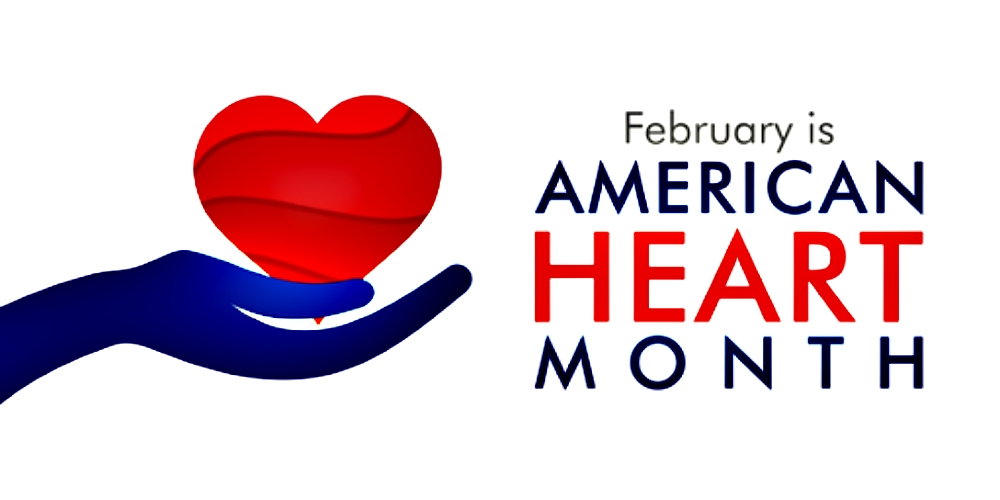Take Care of Your Heart Health
At Banyan Health Systems, we take a holistic approach to health because we know that there are many factors that determine overall health. Heart health is especially important to overall health and we know that lifestyle can have a major impact on heart health. February is American Heart Month. Take Care of Your Heart Health All Year Long with These Tips.
Understand Your Blood Pressure
You could be at risk for high blood pressure (hypertension) without even knowing it. Communities of color are at a higher risk of hypertension. Schedule your blood pressure screenings with a healthcare professional and know your numbers to manage and treat hypertension.
The top number in a blood pressure reading is called the systolic number. The lower (or second) number is the diastolic number.
- Normal blood pressure is less than 120 mmHg for systolic pressure and a diastolic level of less than 80mmHg.
- Pre-hypertension is a systolic of 120 to 139 mmHg or a diastolic of 80 to 89 mmHg.
- High blood pressure is a systolic of 140 mmHg or higher or a diastolic of 90 mmHg or higher.
See your healthcare professional right away to learn to control high blood pressure.
Eat Smart for Your Heart
We understand that when it comes to eating habits one size does not fit all families. Finding a way to eat well that works for you can help you live a healthier, longer life.
Start by reading labels at the grocery store, eating more heart healthy foods and increasing your fruit and vegetable servings. Look for healthy cooking oils with less saturated fats and look for the heart-check mark on your food packaging— that mark assures you that the standards and nutritional value are certified as high for overall health.
Get healthy and simple-to-prepare recipes from the American Heart Association
Get Moving for Heart Health
Being more active can help you feel better and protect your heart. Physical activity will also help you reduce and manage stress.
Get at least 150 minutes per week of physical activity and gradually increase the amount over time. Make activities like walks or even playing with your children outside part of your daily exercise routine.
Other examples of moderate aerobic activities include:
- Swimming
- Dancing
- Gardening
- Tennis
- Cycling
Stop Smoking
Did you know that smokers have more than twice the risk of a heart attack than non-smokers?1 Vaping and tobacco use make a big impact on your heart health. Nicotine use increases heart disease risk by making your blood vessels narrow, decreasing oxygen levels to the heart, increasing blood pressure, and interfering with blood pressure medication by increasing your heart rate while smoking. Your healthcare provider can help you develop a plan to stop smoking and start living healthier.
Maintain a Healthy Weight and Healthy Attitude
The American Heart Association (AHA) reports that 70% of adults are overweight and more than 1/3 are considered obese—which significantly increases the risk for heart disease, stroke, high blood pressure, and diabetes.2 Hispanic and Black communities are more at risk for cardiovascular disease.
A combination of a healthy diet and a positive attitude towards modifications of your lifestyle habits can help you prevent and manage heart disease. Learning to balance healthy eating and physical activity and aiming for a healthy, attainable weight can:
- Help you lose weight
- Help you maintain a healthy weight
- Keep you motivated to keep the extra pounds off
Start by knowing your BMI (body mass index) numbers and risk level. See your doctor for a health screening and BMI reading to learn more about healthy weight maintenance.
Learn more about BMI and find a BMI calculator
Get Heart Health Support in South Florida
Taking better care of your heart will not only reduce your risk for heart disease, but also improve your sleep patterns, reduce stress and provide you with more energy to live a healthier, happier life. Starting a healthier lifestyle today can make a meaningful improvement to your health. Contact us with any questions or to learn more about our primary health care centers.
1 Johns Hopkins University. Smoking and Cardiovascular Disease. Available: https://www.hopkinsmedicine.org/health/conditions-and-diseases/smoking-and-cardiovascular-disease# Accessed February 18, 2022.
2 American Heart Association. Available: https://www.heart.org/idc/groups/heart-public/@wcm/@sop/@smd/documents/downloadable/ucm_462025.pdf Accessed February 18, 2022.


